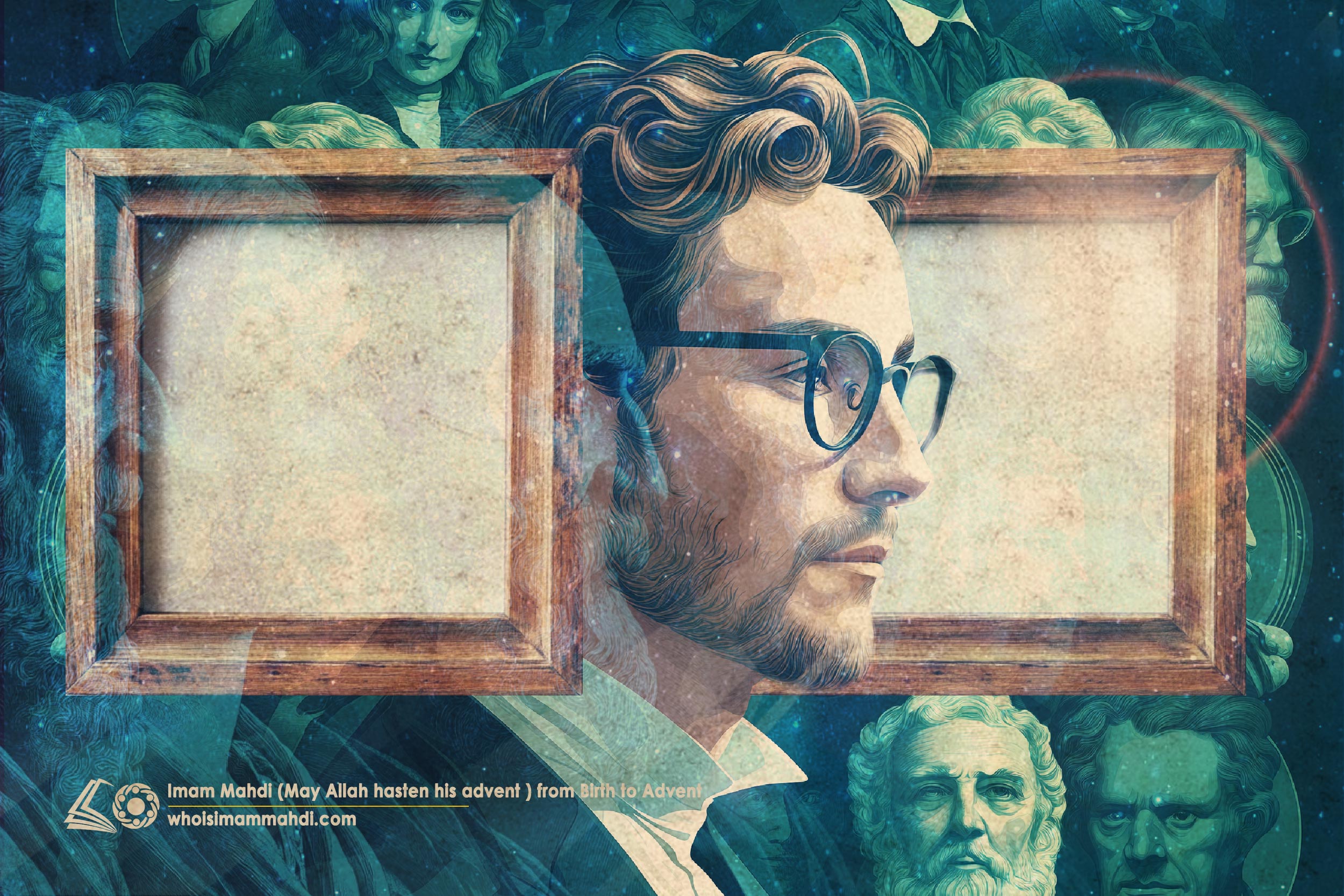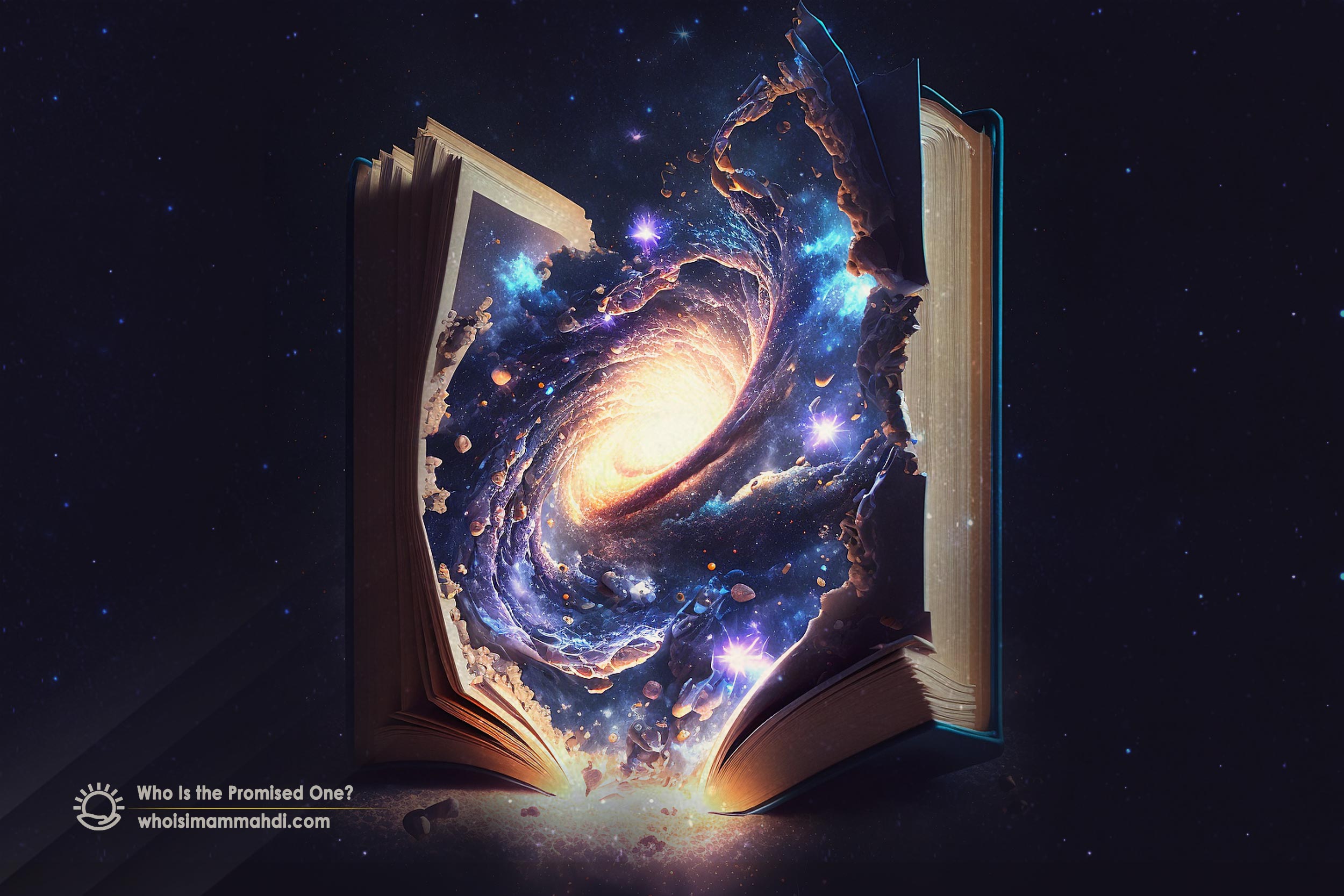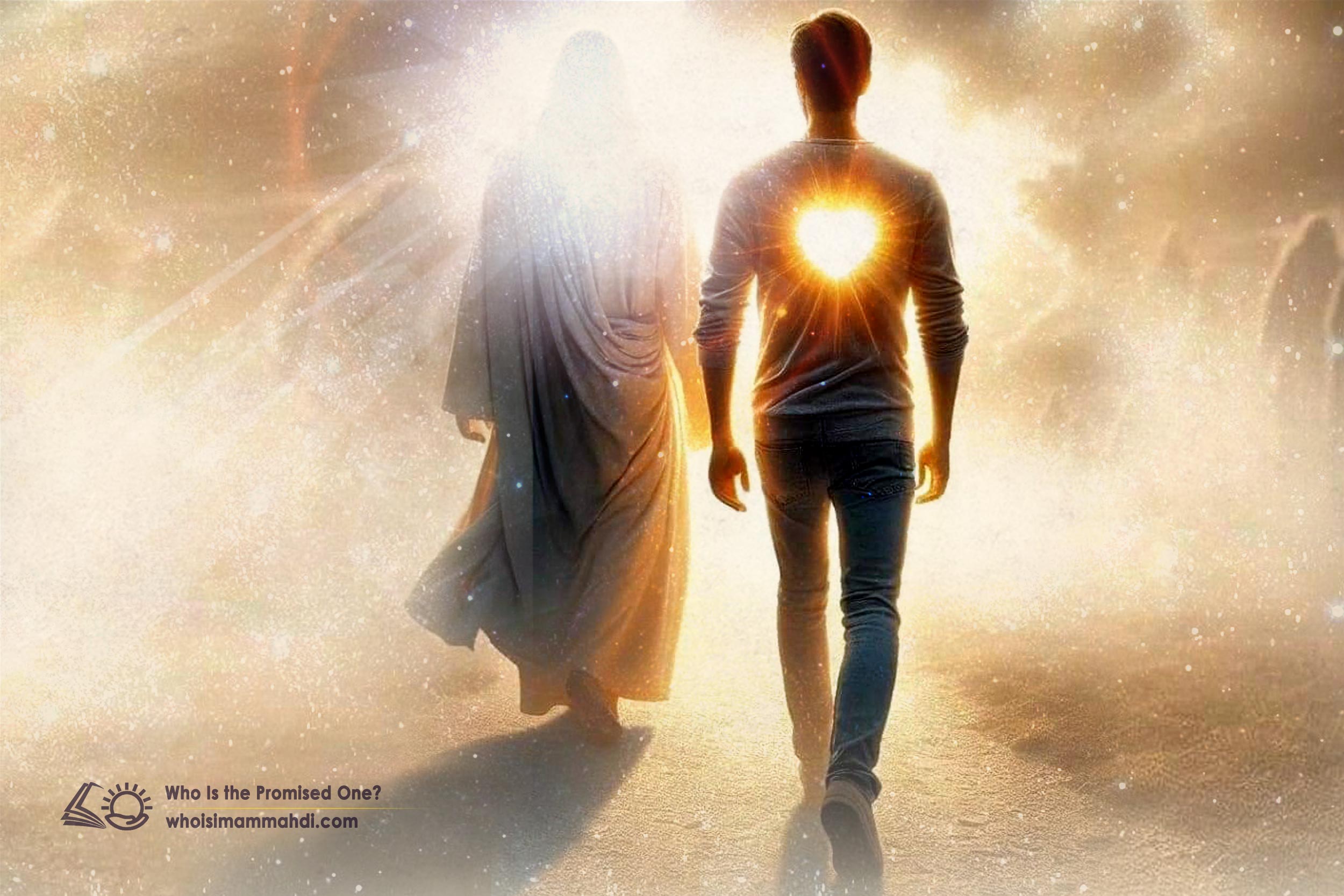Analyzing the Viewpoint of Different Schools of Thought on the Perfect Human Being and Introducing Its True Manifestation
What constitutes the ultimate perfection of humankind? Who is the perfect human being?
Despite the diversity in beliefs and tendencies, all human beings agree on one matter: They all desire perfection and seek more bliss. Thus, there is no disagreement about the desirability and value of perfection. However, the fundamental debate lies in defining the true essence of human perfection and the characteristics of the perfect human being. All schools of thought have tried to answer this question, but their answers are all different.
For instance, Buddhism asserts that life is inherently filled with suffering, and perfection is attained by transcending the stages of suffering. This belief holds that a perfect human being is one who journeys through different bodies in this world, and after experiencing the rewards or punishments for his deeds, he reaches Nirvana. Attaining this state signifies the achievement of true perfection; otherwise, the soul remains trapped in a perpetual cycle of rebirth and ongoing suffering.
As one of the most influential philosophers of the nineteenth century, Friedrich Nietzsche significantly contributed to the rise of materialism and postmodernism, envisioning the Übermensch, Overman or Superman, as his perfect human. Nietzsche conceptualized the Übermensch as a being liberated from ignorance, superstition, and moral constraints and having achieved perfect freedom. This individual would rebel against conventional values, break free from societal norms, and use any means necessary to assert his dominance over the world. Nietzsche argued that God no longer exists, and in a world devoid of God, the Superman replaces God and emerges as the ultimate authority who embodies existence.
Rationalism considers the intellect to be the essence of human beings. From its perspective, a perfect human being is one who has achieved the highest level of reasoning, and has perceived and discovered the universe as it truly is. In contrast, some mystical schools and Sufism consider the intellect to be incapable of bringing human beings to perfection and growth. Instead, they argue that inward intuition and traversing the path through the heart are the sole means for humans to achieve perfection. According to them, the more a person avoids worldly distractions and focuses solely on God, the more successful he will be in completing the levels of perfection.
Despite this wide range of differing perspectives, the question arises: Who is truly a perfect human being? And does such a being, as described by Nietzsche and Buddhism, exist only as an abstract ideal, or is there a concrete, real-world manifestation?
Undoubtedly, human beings have only one existential truth; therefore, it is impossible to consider multiple aspects of perfection for them. The differences in defining the perfect human being stem from a limited and one-dimensional view of humanity. Otherwise, if the human being is known as he truly is and the ultimate purpose of his creation is identified, his true perfection will also become evident.
In the following, we will briefly review the aforementioned perspectives and address the definition of the perfect human being and its manifestation, considering the existential truth of the human being.
Reviewing the Perspectives on Human Perfection
Despite all the criticisms leveled against Buddhism and similar schools of thought, their denial of the afterlife can be considered one of their most significant shortcomings. While this school fo thought recognizes the spirit as the fundamental dimension of human existence, it maintains that the soul does not transfer to the realm of the hereafter after the death of the body. Instead, the soul remains within this world, undergoing reincarnation in various forms, including human fetuses, plants, animals, etc.
What Buddhism posits is essentially a transition from an actual to a potential state, which is impossible from an intellective point of view. Once the human soul has transcended the vegetative and animal stages, actualizing many of its potentials, it cannot regress to the state of a fetus, which is still in a potential state, or to a plant or animal in lower stages of perfection. Given this incorrect definition of the human being and the stages of human life, Buddhism’s theory about the perfect human being is fundamentally false.
Materialistic ideologies, such as those of Nietzsche, deny the existence of a transcendent spiritual dimension in human beings; consequently, their definition of humanity and human perfection is entirely one-dimensional and animalistic. The perfect human being they present is not truly human, but rather a highly developed animal that has attained high levels of power, pleasure, and freedom.
Rationalism considers the identity of human beings to be dependent on their intellect. According to this school of thought, a fully developed human is one who has perfected his intellective abilities and attained wisdom; however, this is an incomplete and one-dimensional definition. As previously discussed, since humans possess intellect, they are on the same level as angels; the intellect is not the criterion for being a human being in the true sense of the word. The true status of the human being is higher than that of angels.
Mystical schools of thought and Sufism consider the human truth to be the heart; they argue that a human is someone who loves, rather than one who reasons. Their path to human perfection involves purifying the soul and achieving extreme detachment from all things except God. They believe that the human being loves the Absolute Perfect Being, that is God, and must not love limited perfections. While the teachings of these schools contain valuable insights, they still do not fully align with the truth of human perfection. This is because true human perfection does not require abandoning the intellect or ignoring the material world.
What Is the Truth of the Perfect Human Being?
The preceding discussion provided a brief overview of various perspectives on the concept of the perfect human as presented in different schools of thought. As it is evident, each school, based on its own worldview, offers a distinct definition of the perfect human being and identifies a particular level as the pinnacle of human perfection. Given these numerous viewpoints, a question arises: Which of these viewpoints is actually correct?
The truth is that defining the perfect human being is impossible without a thorough understanding of the dimensions of human existence, the stages of life, and the purpose of human creation. Consequently, the schools of thought that study the human being independently of his origin and ultimate destination and neglect his spiritual dimension make mistakes in defining the perfect human being and identifying its true manifestation.
The perfect human being, as the name suggests, is someone who possesses all human values and perfections to the highest degree, devoid of any deficiencies. Essentially, the perfect human is one adorned with all perfections, but what exactly are these perfections? Where do they originate from? To answer these questions, we must delve into the story of human creation and the purpose behind it.
God created the entire realm of existence for humanity, and humanity was created to attain the exalted station of being God’s deputy on earth. A deputy is one who acts on behalf of another and has the authority to rule by their permission. The requisite for being a deputy is similarity. One can only be a true deputy if he is similar to the person he is succeeding in every respect; otherwise, the role of deputyship is not fully fulfilled. Therefore, the title of God’s deputy is fitting for someone who is similar to God, the Absolute Perfect Being, in all aspects; the deputy must manifest all God’s names and attributes in the most comprehensive manner.
The manifestation of divine names and attributes in individuals is of paramount importance. Although all divine names inherently exist in all human beings, they are potential and need to be cultivated to become actualized, just as the potential qualities of other dimensions of our being need nurturing. For example, a person with a talent for painting cannot fully develop this talent without being trained. The same applies to talents in music, calligraphy, sports, and so on. Essentially, to truly develop any talent, one needs to consider several factors, with having a mentor being the most important. A mentor is someone who possesses the same talent as the student but has successfully actualized and manifested this talent. If a student wishes to manifest his full potential, he must obey the mentor and follow his guidance.
Our mentor in the human dimension of existence, that is, that part of us capable of becoming God’s deputy, is the perfect human being. The perfect human being is someone who, on the one hand, has fully actualized all divine attributes, that is, he is completely similar to God, and on the other hand, has a physical body, and this makes him entirely similar to us. Therefore, the perfect human being is not an imaginary being to be only found in our dreams. Moreover, the perfect human being is not an absolutely free, absolutely loving, or absolutely rational person; rather, he is in complete balance in all aspects of his being. He embodies the highest development of all values and perfections, leaving no aspect unfulfilled. The perfect human being is the embodiment of all moral and human values, and in every dimension of his personality, we see the most complete and developed state possible. Consequently, only such a person can guide us toward fulfilling the purpose of our creation.
But who are the true and real-world manifestations of the perfect human being?
The Fourteen Infallibles (PBUT) as the Manifestations of the Perfect Human Being
At the beginning of creation, God created a truth that was not different from Him in terms of attributes and names, except for the fact that God was the Creator and this being was the creation. Then all the realms of existence and all beings were brought into existence from this primal truth. This primal truth, known by various names such as the Spirit, the Most Perfect Example, and the truth of Muhammadiyah, is the very essence of the perfect human being. Basically, God first created the perfect human being and then created all other realms and humans from the light of this being. This is also the meaning of “I breathed into him of My Spirit”[2] that God mentions in relation to the creation of humankind.
These perfect humans are none other than the Fourteen Infallibles (PBUT). Allah’s deputyship on earth is fully realized in the Infallibles, meaning that all divine names and attributes are actualized in them to the highest degree. They possess infallibility, that is, they are exempt from all sins and mistakes. However, this infallibility is voluntary; unlike angels, the Infallibles are capable of committing sins, but they consciously and willingly choose to avoid them. If the infallible Imams lacked free will in their infallibility, they could not serve as suitable role models for others. The lifestyle, social interactions, personal conduct, and all the deeds of the Infallibles serve as a model for others, a model that individuals can follow to attain the position of being God’s deputy on earth. Consequently, if this quality had been involuntary and inherent in the Infallibles from the beginning of creation, their role as role models would have been completely undermined, and they would no longer serve as suitable standards for guiding people towards the purpose of creation.
Given our previous discussion, the most crucial aspect of every person’s life, on which his worldly and eternal well-being depends, is their connection to the Infallible Imam. Without clarifying this matter, neither the purpose of human creation can be understood nor can personal growth or progress towards the purpose of creation occur.
Even with achieving perfection in various inanimate, vegetative, and animal aspects, it is impossible to attain true human perfection without connecting with the perfect human. We can excel in our professions, becoming skilled doctors, engineers, businessmen, artists, or craftsmen, but this never makes us good people. The journey towards human perfection, like any other endeavor, requires adherence to specific standards and principles.
The journey towards human perfection means moving towards infinity; it means becoming similar to God by acquiring His names and attributes. No limited manifestation can lead us to infinite perfections. No scientific discipline, scholar, or teacher can help us attain divine attributes. Only the perfect human being who manifests divine names and attributes to their fullest extent can lead us towards our goal, and that person is none other than the Waliullah,[3] that is, the perfect human being.
[2]. Quran, 15:29
[3]. Guardian chosen by Allah


































































